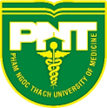Health literacy plays a crucial role in public health. It refers to an individual’s ability to obtain, understand, and use health information to make informed decisions about their health and well-being. In today’s complex healthcare landscape, where information is abundant and constantly evolving, health literacy is more important than ever.
The Impact of Health Literacy on Public Health
Low health literacy has significant implications for public health. Individuals with limited health literacy are more likely to have poorer health outcomes, higher healthcare costs, and lower quality of life. They may struggle to navigate the healthcare system, understand medical jargon, and follow treatment plans. This can lead to delayed or inappropriate care, medication errors, and unnecessary hospitalizations.
Furthermore, low health literacy affects not only individuals but also communities as a whole. It can contribute to health disparities and inequalities, as certain populations may face greater challenges in accessing and understanding health information. This can perpetuate a cycle of poor health outcomes and limited healthcare utilization.
Promoting Health Literacy
Improving health literacy is a shared responsibility that involves healthcare providers, public health agencies, educational institutions, and the community. Here are some strategies to promote health literacy:
1. Clear and Accessible Communication
Healthcare providers and public health professionals should use plain language and avoid medical jargon when communicating with patients and the general public. Information should be presented in a clear and concise manner, using visual aids, such as infographics or videos, to enhance understanding. Additionally, providing information in multiple languages and formats can ensure accessibility for diverse populations.
2. Health Education Programs
Implementing health education programs can empower individuals to take control of their health. These programs should focus on teaching essential health skills, such as understanding medication labels, interpreting test results, and making informed decisions about treatment options. By equipping individuals with the necessary knowledge and skills, they can become active participants in their healthcare.
3. Collaboration and Partnerships
Collaboration between healthcare providers, public health agencies, community organizations, and educational institutions is essential to address health literacy challenges effectively. By working together, these stakeholders can develop comprehensive strategies, share resources, and reach a wider audience. Partnerships can also help tailor interventions to the specific needs and cultural contexts of different communities.
4. Technology and Digital Health Tools
Technology can play a significant role in improving health literacy. Digital health tools, such as mobile applications and online platforms, can provide accessible and interactive health information. These tools can offer personalized recommendations, track health behaviors, and facilitate communication between individuals and healthcare providers. However, it is crucial to ensure that these tools are user-friendly and accessible to all individuals, regardless of their digital literacy skills.
The Role of Public Health Agencies
Public health agencies have a vital role in promoting health literacy at the population level. They can develop and implement health communication campaigns that target specific health issues and populations. These campaigns should utilize evidence-based strategies, such as social marketing techniques and community engagement, to effectively disseminate health information.
Public health agencies can also collaborate with healthcare providers and community organizations to integrate health literacy into existing programs and services. By incorporating health literacy principles into policy development, program planning, and evaluation, public health agencies can create a supportive environment for health literacy promotion.
Conclusion
Health literacy is a critical component of public health. By improving health literacy, we can empower individuals to make informed decisions about their health, reduce health disparities, and enhance overall health outcomes. It requires a collective effort from healthcare providers, public health agencies, educational institutions, and the community. Together, we can build a healthier and more informed society.
